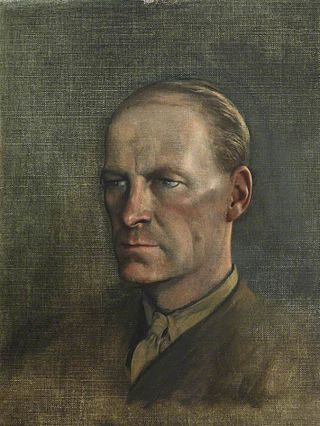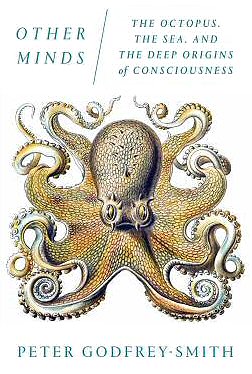Artificial intelligence (AI) is the intelligence of machines or software, as opposed to the intelligence of humans or animals. It is a field of study in computer science that develops and studies intelligent machines. Such machines may be called AIs.

Cognitive science is the interdisciplinary, scientific study of the mind and its processes with input from linguistics, psychology, neuroscience, philosophy, computer science/artificial intelligence, and anthropology. It examines the nature, the tasks, and the functions of cognition. Cognitive scientists study intelligence and behavior, with a focus on how nervous systems represent, process, and transform information. Mental faculties of concern to cognitive scientists include language, perception, memory, attention, reasoning, and emotion; to understand these faculties, cognitive scientists borrow from fields such as linguistics, psychology, artificial intelligence, philosophy, neuroscience, and anthropology. The typical analysis of cognitive science spans many levels of organization, from learning and decision to logic and planning; from neural circuitry to modular brain organization. One of the fundamental concepts of cognitive science is that "thinking can best be understood in terms of representational structures in the mind and computational procedures that operate on those structures."

The mind is that which thinks, imagines, remembers, wills, and senses, or is the set of faculties responsible for such phenomena. The mind is also associated with experiencing perception, pleasure and pain, belief, desire, intention, and emotion. The mind can include conscious and non-conscious states as well as sensory and non-sensory experiences.

George Philip Lakoff is an American cognitive linguist and philosopher, best known for his thesis that people's lives are significantly influenced by the conceptual metaphors they use to explain complex phenomena.
In philosophy, metempsychosis is the transmigration of the soul, especially its reincarnation after death. The term is derived from ancient Greek philosophy, and has been recontextualised by modern philosophers such as Arthur Schopenhauer, Kurt Gödel and Magdalena Villaba; otherwise, the term transmigration is more appropriate. The word plays a prominent role in James Joyce's Ulysses and is also associated with Nietzsche. Another term sometimes used synonymously is palingenesis.

Cognition is the "mental action or process of acquiring knowledge and understanding through thought, experience, and the senses". It encompasses all aspects of intellectual functions and processes such as: perception, attention, thought, imagination, intelligence, the formation of knowledge, memory and working memory, judgment and evaluation, reasoning and computation, problem-solving and decision-making, comprehension and production of language. Cognitive processes use existing knowledge and discover new knowledge.

In philosophy, the brain in a vat (BIV) is a scenario used in a variety of thought experiments intended to draw out certain features of human conceptions of knowledge, reality, truth, mind, consciousness, and meaning. Originated by Gilbert Harman, Hilary Putnam turned the scenario into a modernized version of René Descartes's evil demon thought experiment. Following many science fiction stories, the scenario involves a mad scientist that might remove a person's brain from the body, suspend it in a vat of life-sustaining liquid, and connect its neurons by wires to a supercomputer that would provide it with electrical impulses identical to those a brain normally receives. According to such stories, the computer would then be simulating reality and the "disembodied" brain would continue to have perfectly normal conscious experiences, such as those of a person with an embodied brain, without these being related to objects or events in the real world. According to Putnam, the thought of "being a brain-in-a-vat" (BIV) is either false or meaningless. Considered a cornerstone of Semantic externalism, the argument produced significant literature. The Matrix franchise and other fictional works (below) are considered inspired by Putnam's argument.
A lie-to-children is a simplified, and often technically incorrect, explanation of technical or complex subjects employed as a teaching method. Educators who employ lies-to-children do not intend to deceive, but instead seek to 'meet the child/pupil/student where they are', in order to facilitate initial comprehension, which they build upon over time as the learner's intellectual capacity expands. The technique has been incorporated by academics within the fields of biology, evolution, bioinformatics and the social sciences.
An ostensive definition conveys the meaning of a term by pointing out examples. This type of definition is often used where the term is difficult to define verbally, either because the words will not be understood or because of the nature of the term. It is usually accompanied with a gesture pointing to the object serving as an example, and for this reason is also often referred to as "definition by point ".

Gilbert Ryle was a British philosopher, principally known for his critique of Cartesian dualism, for which he coined the phrase "ghost in the machine." He was a representative of the generation of British ordinary language philosophers who shared Ludwig Wittgenstein's approach to philosophical problems.
Neurophenomenology refers to a scientific research program aimed to address the hard problem of consciousness in a pragmatic way. It combines neuroscience with phenomenology in order to study experience, mind, and consciousness with an emphasis on the embodied condition of the human mind. The field is very much linked to fields such as neuropsychology, neuroanthropology and behavioral neuroscience and the study of phenomenology in psychology.
Ostension is the act of showing or demonstrating something.

Shaun Gallagher is an American philosopher known for his work on embodied cognition, social cognition, agency and the philosophy of psychopathology. Since 2011 he has held the Lillian and Morrie Moss Chair of Excellence in Philosophy at the University of Memphis and was awarded the Anneliese Maier Research Award by the Humboldt Foundation (2012–2018). Since 2014 he has been Professorial Fellow at the University of Wollongong in Australia. He has held visiting positions at Keble College, Oxford; Humboldt University, Berlin; Ruhr Universität, Bochum; Husserl Archives, ENS (Paris); École Normale Supérieure, Lyon; University of Copenhagen; and the Cognition and Brain Sciences Unit, Cambridge University. He is also known for his philosophical notes on the effects of solitary confinement.
Enactivism is a position in cognitive science that argues that cognition arises through a dynamic interaction between an acting organism and its environment. It claims that the environment of an organism is brought about, or enacted, by the active exercise of that organism's sensorimotor processes. "The key point, then, is that the species brings forth and specifies its own domain of problems ...this domain does not exist "out there" in an environment that acts as a landing pad for organisms that somehow drop or parachute into the world. Instead, living beings and their environments stand in relation to each other through mutual specification or codetermination" (p. 198). "Organisms do not passively receive information from their environments, which they then translate into internal representations. Natural cognitive systems...participate in the generation of meaning ...engaging in transformational and not merely informational interactions: they enact a world." These authors suggest that the increasing emphasis upon enactive terminology presages a new era in thinking about cognitive science. How the actions involved in enactivism relate to age-old questions about free will remains a topic of active debate.

Cartesianism is the philosophical and scientific system of René Descartes and its subsequent development by other seventeenth century thinkers, most notably François Poullain de la Barre, Nicolas Malebranche and Baruch Spinoza. Descartes is often regarded as the first thinker to emphasize the use of reason to develop the natural sciences. For him, philosophy was a thinking system that embodied all knowledge.

Embodied cognition is the concept suggesting that many features of cognition are shaped by the state and capacities of the organism. The cognitive features include a wide spectrum of cognitive functions, such as perception biases, memory recall, comprehension and high-level mental constructs and performance on various cognitive tasks. The bodily aspects involve the motor system, the perceptual system, the bodily interactions with the environment (situatedness), and the assumptions about the world built the functional structure of organism's brain and body.

DeepMind Technologies Limited, doing business as Google DeepMind, is a British-American artificial intelligence research laboratory which serves as a subsidiary of Google. Founded in the UK in 2010, it was acquired by Google in 2014, The company is based in London, with research centres in Canada, France, Germany and the United States.
Chad Anthony Engelland is an American philosopher and Professor of Philosophy at the University of Dallas. He is known for his research on the ideas of German philosopher Martin Heidegger. Engelland is a former editor-in-chief of Xavier Newswire (1998–1999).

Other Minds is a 2016 bestseller by Peter Godfrey-Smith on the evolution and nature of consciousness. It compares the situation in cephalopods, especially octopuses and cuttlefish, with that in mammals and birds. Complex active bodies that enable and perhaps require a measure of intelligence have evolved three times, in arthropods, cephalopods, and vertebrates. The book reflects on the nature of cephalopod intelligence in particular, constrained by their short lifespan, and embodied in large part in their partly autonomous arms which contain more nerve cells than their brains.
Tzachi Zamir is an Israeli philosopher and literary critic specialising in the philosophy of literature, the philosophy of theatre, and animal ethics. He is Professor of English and General & Comparative Literature at the Hebrew University of Jerusalem.











